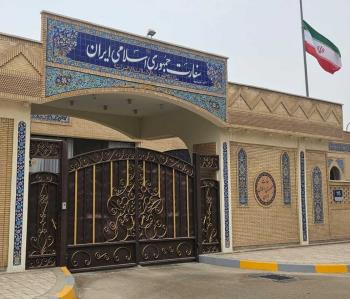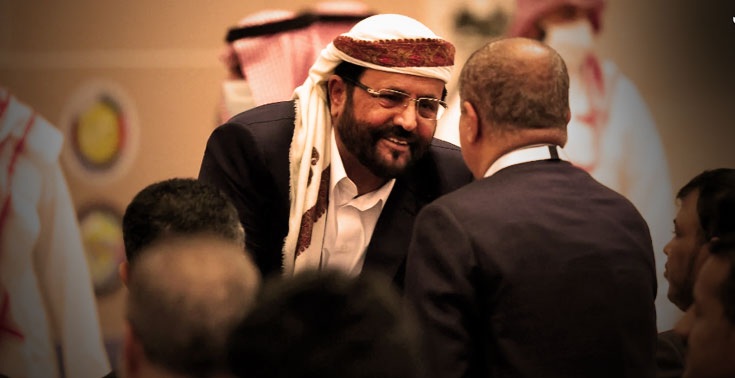Alwaght- While Saudi Arabia has not fulfilled any of its commitments to Yemen ceasefire in the past four months, the UN in association with the US has stepped up its movement to extend the truce for a long time to save Riyadh from the swamp of war. Recently, the UN envoy visited Yemen to persuade Ansarullah Movement for a six-month extension. But the truce was extended for two months in the last hours to its expiration.
Not many hours after this agreement, the Saudi fighter jets violated the ceasefire several times and the Saudis seized a ship carrying fuel to Yemen, showing that they do not adhere to the terms of the ceasefire as before.
On the other hand, the US has announced that it will provide Patriot missile systems to Saudi Arabia in order to strengthen the security of its borders. In other words, the Americans have come to believe that the ceasefire will not last for a long time and the Saudis do not have the will to implement its provisions, and for this purpose, they intend to strengthen the Saudi defense base to counter future Ansarullah missile operations.
According to the ceasefire deal, the naval blockade of Yemen was supposed to be lifted, the Sana'a airport be reopened for the transfer of patients abroad, humanitarian aids be sent to Yemen, and the Saudi attacks be stopped, but in practice, Saudi Arabia did not take any effective steps to implement these plans, and during this period, Riyadh violated the ceasefire more than thousand times. With the four-month ceasefire, Saudi Arabia stopped Ansarullah's missile and drone operations and checked the progress of this group on the battlegrounds, but the Yemenis have not benefited from the agreement.
With the help of the UN, the kingdom seeks to save the status quo and advance its programs without any threat posed to it by the Yemenis. It cannot imagine rejuvenated Yemeni strikes on its oil facilities as fresh attacks at the time of the global energy crisis amid Ukraine crisis would disrupt the oil supplies and aggravate the situation.
The ball is in Saudi court
The officials of the National Salvation Government (NSG) in Sana'a said in recent days they will not be deceived anymore and will not extend the ceasefire at any cost. Not benefiting from the truce over the past four months, Ansarullah this time expects Saudi Arabia to fulfill its promises and if the Saudis takes not effective measures for assurances, Ansarullah will likely abandon the deal.
One of the most important proposals and conditions that Ansarullah sought from the beginning of the ceasefire was to pay the salaries of government employees in order to reduce the economic pressure on the Yemeni society. Since the 2014 revolution led by Ansarullah, based on the agreement made with the government of the resigned President Abdrabbuh Mansour Hadi, the salaries of employees throughout Yemen were supposed to be paid from the customs revenues of Aden and Hudaydeh ports and the sale of oil and gas condensate. After the Saudi invasion, Mansour Hadi's government violated this agreement, and after that, with the transfer of the central bank from Sana'a to Aden in 2017, the hands of Ansarullah and the people living in the areas under its control of the NSG were left empty.
Ansarullah leaders also stipulated full reopening of Sana'a airport and re-operation of Hudaydeh port. They demand an end to the all-out blockade in order to receive the ships to end the fuel crisis. Saudi Arabia has so far prevented entry to the Yemeni ports of fuel ships, causing fuel shortage in many service centers, and particularly the hospitals.
Although Ansarullah has agreed to extend the ceasefire for another two months, the Yemeni authorities have repeatedly warned the Saudis and Emiratis that violating the ceasefire will have dangerous consequences for the aggressors. The most important achievement of Ansarullah in the war was the missile and drone capability of this movement, which changed the developments on the ground in its favor with repeated operations deep in Saudi Arabia and the UAE. But since four months ago, it has stopped all its operations inside and outside. If the ceasefire fails, Ansarullah will use its options. The leaders of Ansarullah had said that they have a data bank of 300 sensitive centers in Saudi Arabia and the UAE, which they will to target if necessary. Therefore, by extending the ceasefire, the movement gave the Saudis and the Emiratis a chance to fulfill their promises as the only way for the two countries to save the safety of oil facilities and citizens.
The UN sought a six-month extension but Ansarullah agreed to only two months as a chance to the Saudis as it does not trust the enemy and in next two months the cold season will start in the West and energy remains a top international issue. This will pressure Riyadh to stand on its words for a new extension of the truce deal.
Ansarullah said that if the Yemenis do not benefit from the ceasefire, it will resume its operations and this time the scope of war will be wider than before. The Yemenis have repeatedly warned that their arsenal has hundreds of ballistic missiles that can continue the war for a long time. In order to demonstrate that it is fully prepared for the continuation of the war, the government of Sana'a showed off its strength and combat readiness to the aggression states and their allies by holding a parade with the presence of thousands of forces on Tuesday. Although the Yemenis did not conduct operations during the ceasefire, they have improved their military capabilities to be used against the aggression coalition in the future. Yemenis want to show that an agreement that only benefits Saudi Arabia will not stand long, and they have cards that can force the enemies to retreat. Analysts agree that this time even sending more Patriot systems to Saudi Arabia cannot save the Saudis from the wrath of the Yemenis, even though these missile batteries have already been in Saudi Arabia and the UAE and their inefficiency was proven, and this time, too, the American government's only purpose for deployment of new missile interceptors is cashing in on the Saudi worries about renewed Yemeni strikes.
Still bearing the brunt of heavy costs of eight-year war, the Saudis find this ceasefire as the only way to cut their expenses. They know well that with the end of the ceasefire, hundreds of Ansarullah missiles would target the oil-wealthy kingdom and grab the calm of its leaders. The Yemenis now do not have much to lose and with the collapse of the truce they will defend their interests with full force.



























